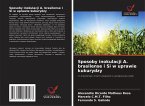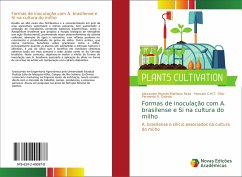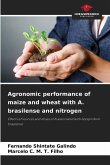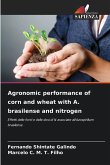Due to the high cost of fertilizers and awareness of sustainable and less polluting agriculture, the use of inoculants containing diazotrophic bacteria, such as Azospirillum brasilense, has increased. This bacteria promotes biological nitrogen fixation and has a phytohormonal action, promoting greater root system development, water and nutrient absorption, with positive effects on the growth and productivity of corn grains. Another practice that has numerous benefits for grasses such as corn, especially when plants are subjected to biotic and abiotic stresses, is the use of silicon, which is beneficial in adverse climatic conditions (increasingly common) and acidic soils such as those found in the Brazilian Cerrado. In this context, the objective was to evaluate the effect of inoculation with A. brasilense associated with the application of silicon as an acidity corrector in comparison with dolomitic limestone.
Bitte wählen Sie Ihr Anliegen aus.
Rechnungen
Retourenschein anfordern
Bestellstatus
Storno








